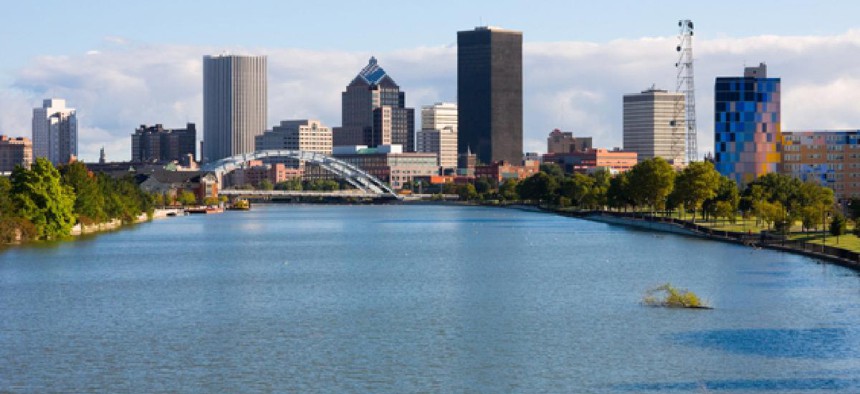The Empire State Poverty Reduction Initiative needs more evaluation

New York state has embarked on the most innovative attempt to reduce poverty in a generation. It’s a daring approach that we should all be watching closely because the results could profoundly change how we structure and manage social service programs in the future. It has great potential, but unfortunately not enough resources have been directed toward evaluating how well the program is actually working.
In January of 2016, Gov. Andrew Cuomo announced The Empire State Poverty Reduction Initiative, a $25 million proposal to create anti-poverty plans and task forces in ten cities.

ESPRI is modeled after the Rochester Anti-Poverty Task Force which employs a whole-community approach to combatting poverty. The United Way of Greater Rochester serves as the backbone organization. This effort has several unique features that differ from established anti-poverty efforts.
First, the effort is data driven and underpinned by extensive data gathering. Second, state and local government, private business, the nonprofit community, higher education officials, faith-based leadership, and most notably individuals and families living in poverty are all engaged. Third, there is an emphasis on proven program models and measurement of results. Finally, there is a commitment by the state to assist in breaking down silos between departments, funding streams and programs – and to provide support through policy changes, regulatory changes, or waivers where necessary.
Unlike many previous attempts to reduce poverty, this isn’t a new type of service, but a new way of planning and delivering services. It allows for services to be built around individuals and families, rather than conforming people to services.
The initiative was expanded to 16 high-poverty cities in the state budget last spring: Albany, the Bronx, Binghamton, Buffalo, Elmira, Hempstead, Jamestown, Newburgh, Niagara Falls, Oneonta, Oswego, Rochester, Syracuse, Troy, Utica and Watertown. Each city’s project is led by the mayor or a senior elected official who designates a nonprofit to manage the project. Each city is now convening a task force and launching the data gathering and planning process.
United Way has a stake in ESPRI’s success; in nine of the 16 sites, the local United Way was chosen by the elected official to manage the ESPRI program. However, there is no consistent program-wide framework for measuring results.
Such a framework is most beneficial at the early stages of the program, so people know what data is significant, rather than trying to reconstruct that data after the fact. We also want to avoid having all 16 sites wrestle with developing an evaluation process and creating 16 different solutions. Rochester, for example, has set a goal to reduce poverty in their area by 50 percent over the next 15 years. Other sites will inevitably set very different goals and milestones to mark their progress.
There is still time to fix this and realize the full value of ESPRI. The legislature is returning. Contracts between state and local sites are still being finalized.
Grants to the sites range from $1 million to $2.75 million. A portion of each grant is designated for planning, with the balance directed to implementation. The state should leverage existing investment in the ESPRI program to add a program-wide framework for measurement and evaluation.
The state has demonstrated a genuine interest in allowing each site real flexibility in approaching the problem, and we are likely to see quite a bit of variety. That’s good, but we do need some consistency in measurement in order to learn as much as possible and make informed progress.
Reg Foster is the President and CEO of United Way of New York State.
